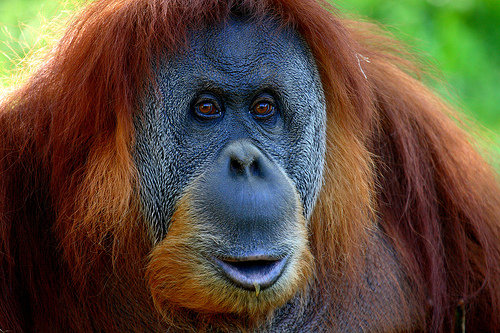 Photo courtesy Frank Peters via FlickrFinally … some good news! Today, Nestle, the world’s biggest food and drinks company, announced that it will cease using products that drive the tropical rainforest destruction.
Photo courtesy Frank Peters via FlickrFinally … some good news! Today, Nestle, the world’s biggest food and drinks company, announced that it will cease using products that drive the tropical rainforest destruction.
This is great news for our environment in what has otherwise been a bleak few weeks. President Obama continues to dig in (or drill in) and stand firm behind his plans to increase offshore oil drilling despite the BP Deepwater oil disaster and continues to work to lift the ban on commercial whaling.
In the midst of it all, Nestle’s recent act is a refreshing act of leadership.
Here is why this matters: 17 percent of global-warming pollution comes from deforestation. Brazil and Indonesia are among the four most polluting countries (with China and the U.S.) because cutting trees releases carbon pollution.
To address the main driver of deforestation in Brazil — cattle ranching — Greenpeace worked with Nike, Wal-Mart, Timberland, and other companies to pressure their suppliers to stop grazing cattle on recently deforested land.
In Indonesia, palm oil and pulp plantations are both driving deforestation and pushing orangutans to the brink of extinction. After being caught red-handed, Nestle has committed to identify and exclude companies from its supply chain that own or manage “high-risk plantations or farms linked to deforestation.” This exclusion would apply to companies such as Sinar Mas, Indonesia’s most notorious palm-oil and pulp-and-paper supplier, if it fails to meet the criteria set out in the policy. It also has implications for palm oil traders, such as Cargill, which continue to buy from Sinar Mas.
Palm oil: Cooking the planet
Palm oil is used in a huge range of products — from chocolate, toothpaste, and cosmetics to so-called “climate-friendly” biofuels. Global demand for both palm oil and paper is increasing, with companies like Sinar Mas expanding into Indonesia’s forests and peatlands. As a result, the country has one of the fastest rates of forest destruction on the planet and is the world’s third-largest greenhouse-gas emitter, after China and the United States.
A Greenpeace report, “Caught Red-Handed: How Nestle’s Use of Palm Oil is Having a Devastating Impact on Rainforest, the Climate and Orangutans,” exposed how Nestle’s growing use of palm oil is linked to companies involved in the destruction of forests and peatlands in the Paradise Forest region of Southeast Asia.
The Paradise Forest region is one of the most important, but highly threatened, tropical forest regions on the planet. With world-renowned wildlife diversity, the rainforest islands of Paradise are home to critically endangered orangutans, Sumatran tigers, and spectacular birds that exist nowhere else on Earth. But with a world-record-breaking deforestation rate, there’s not much time to protect their habitat.
An anatomy of a Greenpeace campaign
Long past are the days when all it took were a few courageous people in a boat blocking nuclear tests or grenade-tipped harpoons to pass global bans on nuclear testing or commercial whaling. But this does not mean that modern campaigns, with social media, global coordination, public mobilization, and deep research, don’t still depend on individuals taking principled, peaceful, courageous action to make change that few thought was possible.
The Nestle announcement is a step toward such significant change — the end of tropical deforestation.
Of course, it took quite a bit of work to provide support for the champions in Nestle who were working to make the company a force for good. The release of the “Caught Red-Handed” report was just the beginning. Add thousands of canvassers on the street in as many as 24 countries telling millions of people about Nestle and deforestation. Layer on the video spoof of Kit Kat, a Nestle brand in most countries but the U.S. (where Hershey’s distributes Kit Kat), which was seen by millions around the globe within just a few hours of its release.
Then imagine tens of thousands of Greenpeace’s 2.9 million members becoming your Facebook friend, only they’re not really your friends … So many activists flooded Nestlé’s Facebook page that its overwhelmed moderator began to engage with them in some very unfriendly ways. The media took note, including The Wall Street Journal, which chronicled the firestorm in the article “Nestle Takes a Beating on Social-Media Sites.”
On March 17, good-humored protests took place across Europe and disrupted the Nestle shareholder meeting, calling for an end Nestle’s “Kit Kat-astrophic policies.”
Today, Nestle announced that it will “focus on the systematic identification and exclusion of companies owning or managing high-risk plantations or farms linked to deforestation” and “ensure that its products have no deforestation footprint.” And for today, Greenpeace will commend Nestle on its commitments. Now comes the real work — changing its practices.



